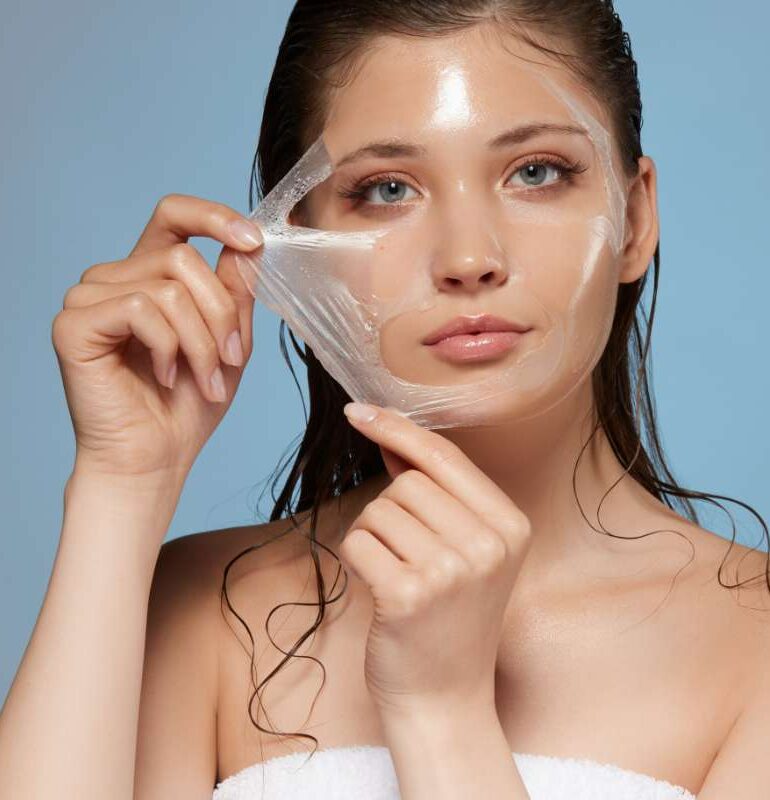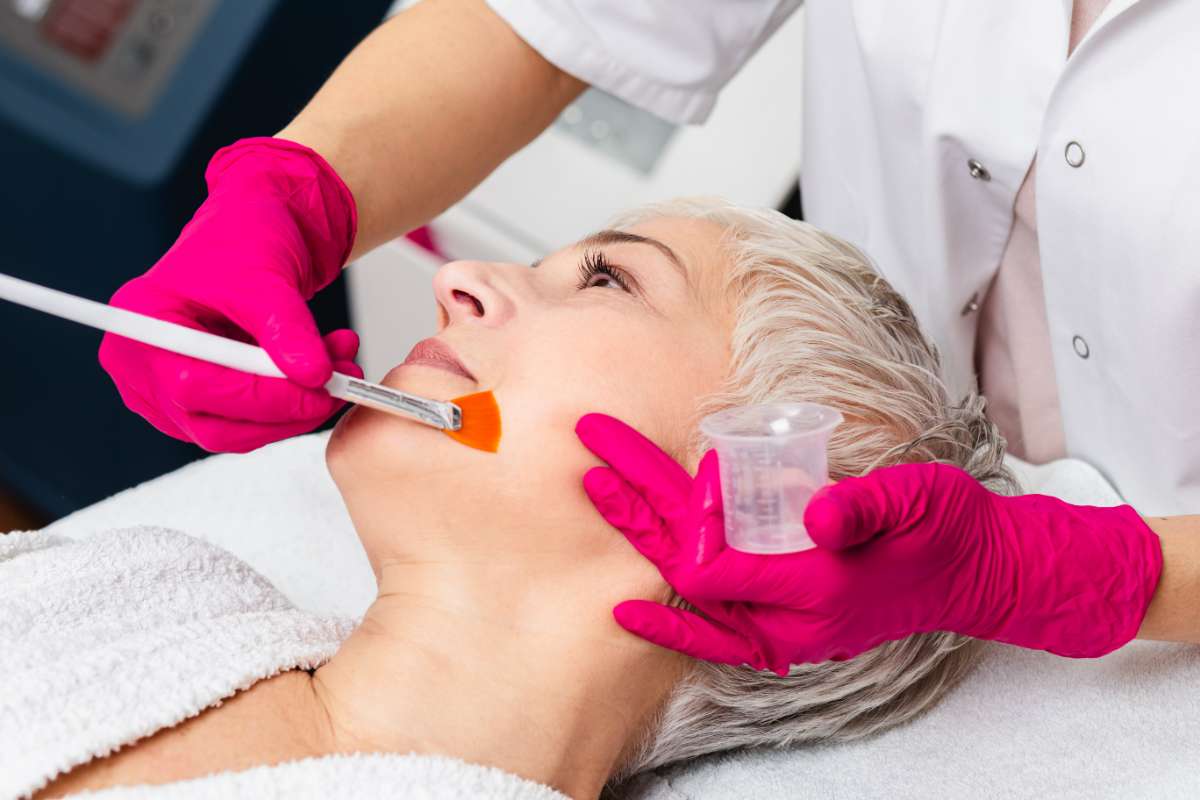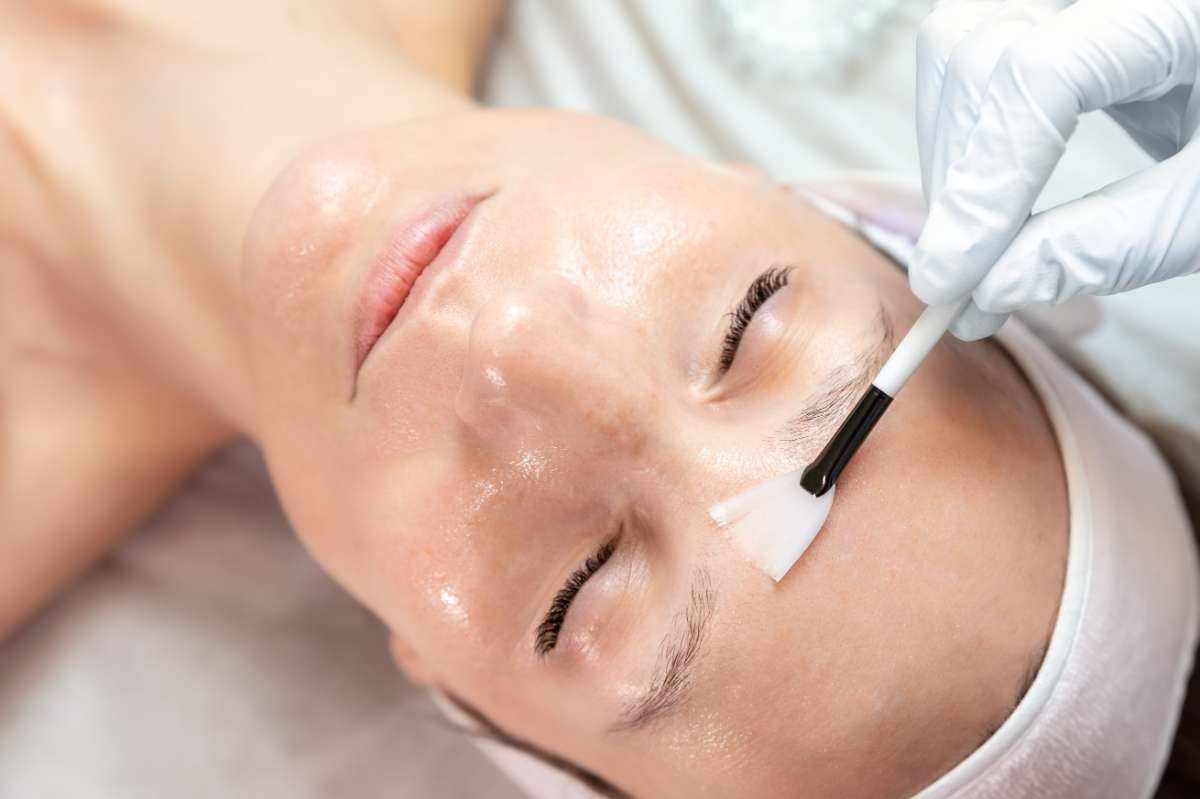Chemical peel treatment
Chemical Peels
Chemical face peel treatments smooth out skin texture and reduce visible imperfections, with light peels brightening, medium peels targeting deeper lines, and deep peels dramatically enhancing overall skin tone.
About Our Chemical Peels
Chemical peels are a dynamic and effective skincare solution, designed to enhance your skin’s radiance and youthfulness. Using potent chemical solutions such as glycolic acid and trichloroacetic acid (TCA), these peels work by shedding the outermost layer of damaged skin, unveiling the fresher, more vibrant cells beneath. Depending on the specific skin issues you wish to address, there are various types of peels available. Light peels, also known as superficial peels, are great for minor concerns like fine lines and uneven skin tone. For more pronounced skin issues like deeper wrinkles and acne scars, medium depth peels are more suitable. For the most severe cases, such as deep wrinkles and significant sun damage, deep chemical peels are recommended and should only be administered under the care of a dermatologist.
Our experienced medical professionals, including board-certified dermatologists, will conduct a thorough consultation to assess your individual needs and recommend the most effective type of chemical peel. Schedule a consultation today to discuss if a chemical peel is right for you.
How Chemical Peels Work
Application
The treatment starts with the careful application of a chemical solution such as glycolic acid, salicylic acid, lactic acid, trichloroacetic acid (TCA), or phenol to the targeted skin areas. This solution is chosen based on the desired depth of the peel and the specific skin issues being addressed.
Exfoliation
Once applied, the chemical solution causes the skin to exfoliate by breaking down the bonds between dead cells on the skin’s surface. This controlled damage initiates the natural peeling process, tailored to either light, medium, or deep levels.
Peeling
Over the next few days, the treated skin begins to peel off. This shedding process varies: light peels might lead to slight flaking, whereas medium and deep peels may cause more significant peeling and require a period of downtime for recovery.
Healing and Regeneration
After the peeling, the newly exposed layer of skin is usually smoother and less wrinkled than the old skin. This new skin is also more sensitive to the sun, so proper sun protection and skincare are crucial. The final result is a clearer, brighter complexion with reduced wrinkles, scars, and pigmentation issues.

Ideal Candidates for Chemical Peels

Must be at least 18 years old.

Should be in good physical and mental health.

Possesses good skin elasticity.

Has realistic expectations about the outcomes of non-surgical procedures.

Seeks to reduce facial wrinkles without undergoing surgery.

Does not have any medical contraindications.
Chemical peels improve firmness and reduce signs of aging by enhancing collagen production. They effectively prevent acne by clearing clogged pores and even out skin tone by addressing pigmentation issues like sunspots and melasma. Additionally, they help smooth skin texture and minimize the appearance of scars, providing a rejuvenated complexion. Schedule a consultation today to discuss if a chemical peel is right for you!
Successful Stories





Chemical Peel Questions & Answers
What does a chemical peel do?
A: A chemical peel utilizes chemical solutions like glycolic acid, salicylic acid, or trichloroacetic acid to remove the damaged outer layer of skin, revealing smoother, healthier skin underneath. It effectively treats various skin conditions such as uneven skin tone, acne scars, and deep wrinkles, enhancing the skin’s overall texture and appearance.
How long does a chemical peel last?
The results of a chemical peel can vary. Superficial peels might require regular maintenance every few months, while medium and deep peels offer more dramatic and long-lasting effects that can last several years, depending on the skin’s exposure to sun damage and the individual’s skin care regimen.
What is the downside of chemical peels?
The potential downsides of chemical peels include skin sensitivity to sun exposure post-treatment, possible redness, peeling, and irritation during the healing process. Deep peels may also require a significant recovery time and carry risks such as changes in skin coloration or scarring, particularly if pre-treatment instructions (like avoiding sun exposure and certain medications) aren’t followed.
How much does a chemical peel cost?
The cost of a chemical peel varies widely depending on the type of peel and other specific factors. On average, superficial peels can range from $100 to $4,000, medium peels from $200 to $2,000, and deep peels from $3,000 to $6,000. An accurate cost can be determined after a consultation with our qualified professionals, who will assess your skin condition and discuss the best chemical peel treatment option for you.
